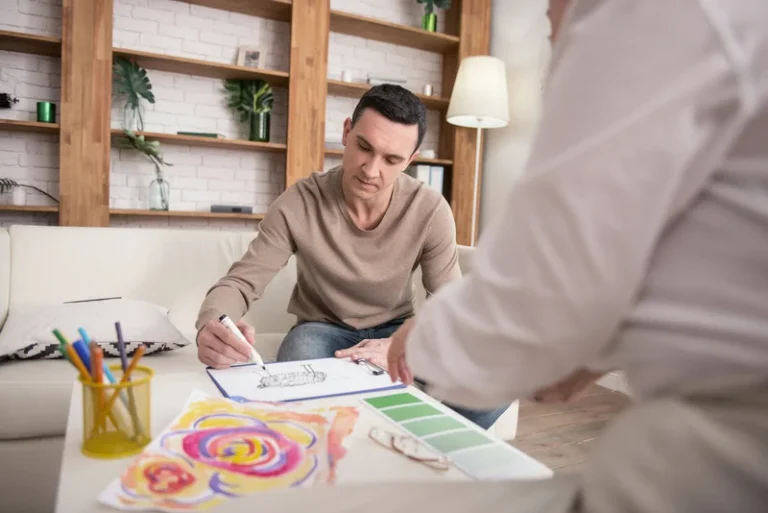
These benefits are measurable and numerous; the negative impacts, equally, are statistically and clinically significant. Studies are limited by the sheer pervasiveness of caffeine in the modern diet, and the popular consensus about the “benefits” of caffeine clearly drives some of these “benefits”. A drug addiction further complication is what appears to be high variability in individual response to caffeine, including the suppression of sleep.
- Unlike sleeping pills, CBTi helps you overcome the underlying causes of your sleep problems rather than just alleviating the symptoms.
- Please note, we cannot provide specific medical advice, and always recommend you contact your doctor for any medical matters.
- It’s best to cut off drinking alcohol at least four hours before bedtime.
- You may also experience parasomnias which are disruptive sleep disorders that occur in specific stages of sleep or in sleep-wake transitions.
- Lifestyle changes such as avoiding alcohol hours before sleep may be sufficient for treating mild, short-term insomnia.
The Science Behind Alcohol and Sleep
People who abuse alcohol long-term don’t seem to display the deep recovery sleep that most people show after sleep deprivation, suggesting that the homeostatic drive is no longer functioning as it should. Many of us have indulged in a glass of wine to help send us off to bed, and more than 1 in 10 people uses alcohol to beat stress-related insomnia and sleep better at night. However, the bulk of the evidence shows that alcohol doesn’t improve sleep.
What is the mortality rate of alcohol withdrawal syndrome?

These fluctuations play a vital role in the sleep-wake cycle, and when they are weakened—or absent—a person may feel alert when they want to sleep and sleepy when they want to be awake. Alcohol also affects people with central sleep apnea (CSA), which occurs when the brain periodically stops sending certain signals involved in breathing. Alcohol interferes with the brain’s ability to receive chemical messages involved in breathing, which decreases the body’s respiratory drive and increases the likelihood of pauses in breathing. So, the impact of caffeine consumption on subsequent sleep quality is complicated by a number of factors. For example, it is often ingested by those who are already fatigued, as well as being implicated in causing the fatigue in the first place. Research by del Brutto et al39 noted secondary triggers to wakefulness, such as noise and artificial light, as well as interactions with other factors such as diet which may interfere with sleep.
- Acute caffeine intake affected participants in different categories equally—those caffeine-deprived for a week responded similarly to those deprived for shorter periods.
- Alcohol can initially increase adenosine levels, a neurotransmitter that induces sleepiness.
- However, the convenience of accessing caffeine compared to ensuring adequate restorative sleep means that caffeine has applied advantages that are likely to see its use as a performance “enhancing” substance persist.
- The Well is Northwell Health’s commitment to the future of health care.
What Happens When You Drink Alcohol Before Bed

Alcohol may indeed help some individuals fall asleep faster, creating a false sense of its effectiveness as a sleep remedy. While your internal clock regulates the kidney’s does alcohol help you sleep release of electrolytes and works to filter fluids, alcohol inhibits these processes. It is recommended you increase your daily water consumption and avoid drinking alcohol before bed to prevent its dehydrating effects. After a few drinks, these increased adenosine levels send us into a deep sleep. However, once the body realizes it’s had too much slow wave sleep, the homeostatic drive compensates by allowing us less deep sleep in the second half of the night. People who consistently drink too much alcohol may eventually build up a tolerance to its initial sedative effects.
How does alcohol affect sleep quality?

If you feel pretty drunk, you’ll probably fall asleep quickly but have a restless night. Drinking a light to moderate amount of alcohol (one or two standard drinks) before bed may not have much of an impact. Finally, going to bed with alcohol in your system increases your chances of having vivid dreams or nightmares, or sleepwalking and other parasomnias. Have you ever woken yourself up snoring after an evening cocktail or two?
Understanding the effects of alcohol on sleep

“The evenly distributed weight on you tells your =https://ecosoberhouse.com/ body, ‘Hey, you’re in a calm environment,’” he said. Alcohol can worsen snoring by relaxing muscles in your throat and mouth, making it harder for air to flow smoothly to your lungs. This means you have to work harder to inhale air which causes vibration of the soft tissues in your throat leading to louder breathing and snoring. As mentioned, the snooze-inducing effect of alcohol doesn’t last all night.








